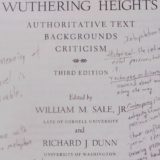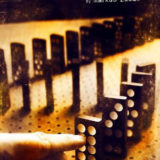Educational Passion: A Meditation
Yesterday I participated in two online experiences for the first time: a Twitter discussion using the hashtag #edchat, and a live webinar featuring Ken Robinson, author of The Element: How Finding Your Passion Changes Everything.
Both experiences revolved around the word passion (a rather appropriate concept in the days leading up to Easter), and in the wake of the visionary ideas that were sparking across the electrons of the web yesterday, several thoughts came to me that I wanted to put into written words for better self-clarification. Maybe they’ll resonate with you, too.
Passion Involves Suffering
As Sam Schechner explains, the word passion comes from the Latin passio which means suffering. Several teachers in yesterday’s discussions lamented the way they get treated when they exhibit passion. This suffering is fairly common in people who express their strong feelings for a particular cause or ideal. There is an energy and force to passion that can intimidate and/or startle people.
But there is more to the suffering of passion than just the reaction of intimidated acquaintances. Our passions arise from deep within us, from longings deep within our hearts. As a religious man, I understand this longing as ultimately a longing for God, and my passion as simply the way I attempt to find unity with the Person that is ultimate truth, goodness and beauty. This longing drives me and haunts me, and when I try to bury it or ignore it, I experience pain.
This is why we teachers must help students get in touch with the deepest longings of their hearts–to encounter the infinite desires within themselves and attempt to quench them. Anything short of this endeavor is a tragic disservice to students.
Passion Is Inherently Unquenchable
Ironically, we also experience pain when we try to satisfy our longings. No matter how successful we are in following our passions, we are never fully satisfied. Ask anyone who has completed a bachelor’s degree, or been recognized with a teaching award, for instance. The passion remains, and in some cases grows more intense with the realization that progress is beginning to be made.
Our students need to know that the skills, knowledge and connections they learn in school are merely the building blocks of living a passionate life. Each student must be encouraged to have the heart of a learner. No–that’s not quite accurate. Rather, each student must recognize that he or she is already hard-wired with the heart of a learner, and that school is the place to develop and nurture that heart.
We teachers must embrace this reality with our entire being, Maybe that means doing away with grades and trusting to a student’s innate desire to learn, as Joe Bower suggests. Maybe it means offering students more autonomy in activities like writing workshop or independent reading. In any case, students will begin to quench their unquenchable desires with or without our help. We can work with them or against them.
Passion Is the Key
We have a tendency to call things passions that really are not. We say things like, “Education is my passion,†or “I have a passion for books.†At best, those expressions are shorthand for, “Education is what gives my life meaning,†and “Books are a significant way I make sense of the world.â€
Our objects of passion are not the same thing as our passion. Passion is one’s inner fire for truth, goodness and beauty, seeking to be shared with others. It is a burning within us, a fire in our hearts that we want to share with the world.
And therein lies the secret of teaching.
If we share our passion with students, then their fires will begin to burn all the more fiercely. Bitter, fatigued teachers cannot be effective fans for the flames of passion in students. Teachers who have lost the meaning of their lives are hard pressed to help students find meaning in their lives. We, too, must continue the lifelong joy of trying to quench the unquenchable fire, of nurturing the heart of a learner within ourselves.
Henry David Thoreau once wrote, “The millions are awake enough for physical labor; but only one in a million is awake enough for effective intellectual exertion, only one in a hundred millions to a poetic or divine life. To be awake is to be alive.â€
Are we awakening our students or putting them to sleep?
Follow Up with These Books:
- The Rhythm of Life by Matthew Kelly
- The Courage to Teach by Parker Palmer
- The Holy Longing by Ronald Rolheiser












